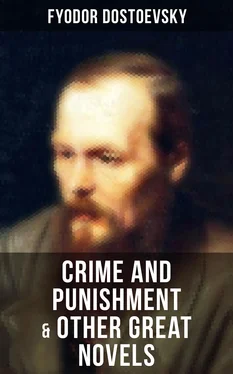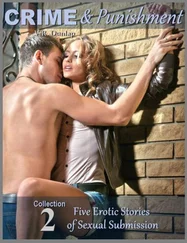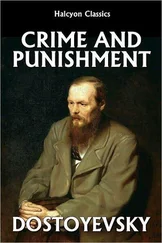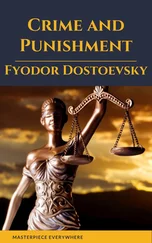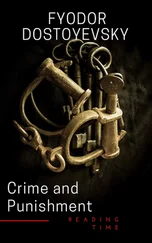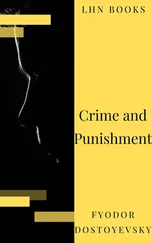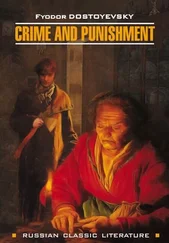Sonia sat down again, and again timidly she took a hurried, frightened look at the two ladies, and dropped her eyes. Raskolnikov’s pale face flushed, a shudder passed over him, his eyes glowed.
“Mother,” he said, firmly and insistently, “this is Sofya Semyonovna Marmeladov, the daughter of that unfortunate Mr. Marmeladov, who was run over yesterday before my eyes, and of whom I was just telling you.”
Pulcheria Alexandrovna glanced at Sonia, and slightly screwed up her eyes. In spite of her embarrassment before Rodya’s urgent and challenging look, she could not deny herself that satisfaction. Dounia gazed gravely and intently into the poor girl’s face, and scrutinised her with perplexity. Sonia, hearing herself introduced, tried to raise her eyes again, but was more embarrassed than ever.
“I wanted to ask you,” said Raskolnikov, hastily, “how things were arranged yesterday. You were not worried by the police, for instance?”
“No, that was all right . . . it was too evident, the cause of death . . . they did not worry us . . . only the lodgers are angry.”
“Why?”
“At the body’s remaining so long. You see it is hot now. So that, to-day, they will carry it to the cemetery, into the chapel, until to-morrow. At first Katerina Ivanovna was unwilling, but now she sees herself that it’s necessary . . .”
“To-day, then?”
“She begs you to do us the honour to be in the church to-morrow for the service, and then to be present at the funeral lunch.”
“She is giving a funeral lunch?”
“Yes . . . just a little. . . . She told me to thank you very much for helping us yesterday. But for you, we should have had nothing for the funeral.”
All at once her lips and chin began trembling, but, with an effort, she controlled herself, looking down again.
During the conversation, Raskolnikov watched her carefully. She had a thin, very thin, pale little face, rather irregular and angular, with a sharp little nose and chin. She could not have been called pretty, but her blue eyes were so clear, and when they lighted up, there was such a kindliness and simplicity in her expression that one could not help being attracted. Her face, and her whole figure indeed, had another peculiar characteristic. In spite of her eighteen years, she looked almost a little girl — almost a child. And in some of her gestures, this childishness seemed almost absurd.
“But has Katerina Ivanovna been able to manage with such small means? Does she even mean to have a funeral lunch?” Raskolnikov asked, persistently keeping up the conversation.
“The coffin will be plain, of course . . . and everything will be plain, so it won’t cost much. Katerina Ivanovna and I have reckoned it all out, so that there will be enough left . . . and Katerina Ivanovna was very anxious it should be so. You know one can’t . . . it’s a comfort to her . . . she is like that, you know . . . .”
“I understand, I understand . . . of course . . . why do you look at my room like that? My mother has just said it is like a tomb.”
“You gave us everything yesterday,” Sonia said suddenly, in reply, in a loud rapid whisper; and again she looked down in confusion. Her lips and chin were trembling once more. She had been struck at once by Raskolnikov’s poor surroundings, and now these words broke out spontaneously. A silence followed. There was a light in Dounia’s eyes, and even Pulcheria Alexandrovna looked kindly at Sonia.
“Rodya,” she said, getting up, “we shall have dinner together, of course. Come, Dounia. . . . And you, Rodya, had better go for a little walk, and then rest and lie down before you come to see us. . . . I am afraid we have exhausted you . . . .”
“Yes, yes, I’ll come,” he answered, getting up fussily. “But I have something to see to.”
“But surely you will have dinner together?” cried Razumihin, looking in surprise at Raskolnikov. “What do you mean?”
“Yes, yes, I am coming . . . of course, of course! And you stay a minute. You do not want him just now, do you, mother? Or perhaps I am taking him from you?”
“Oh, no, no. And will you, Dmitri Prokofitch, do us the favour of dining with us?”
“Please do,” added Dounia.
Razumihin bowed, positively radiant. For one moment, they were all strangely embarrassed.
“Good-bye, Rodya, that is till we meet. I do not like saying good-bye. Good-bye, Nastasya. Ah, I have said good-bye again.”
Pulcheria Alexandrovna meant to greet Sonia, too; but it somehow failed to come off, and she went in a flutter out of the room.
But Avdotya Romanovna seemed to await her turn, and following her mother out, gave Sonia an attentive, courteous bow. Sonia, in confusion, gave a hurried, frightened curtsy. There was a look of poignant discomfort in her face, as though Avdotya Romanovna’s courtesy and attention were oppressive and painful to her.
“Dounia, good-bye,” called Raskolnikov, in the passage. “Give me your hand.”
“Why, I did give it to you. Have you forgotten?” said Dounia, turning warmly and awkwardly to him.
“Never mind, give it to me again.” And he squeezed her fingers warmly.
Dounia smiled, flushed, pulled her hand away, and went off quite happy.
“Come, that’s capital,” he said to Sonia, going back and looking brightly at her. “God give peace to the dead, the living have still to live. That is right, isn’t it?”
Sonia looked surprised at the sudden brightness of his face. He looked at her for some moments in silence. The whole history of the dead father floated before his memory in those moments . . . .
*****
“Heavens, Dounia,” Pulcheria Alexandrovna began, as soon as they were in the street, “I really feel relieved myself at coming away — more at ease. How little did I think yesterday in the train that I could ever be glad of that.”
“I tell you again, mother, he is still very ill. Don’t you see it? Perhaps worrying about us upset him. We must be patient, and much, much can be forgiven.”
“Well, you were not very patient!” Pulcheria Alexandrovna caught her up, hotly and jealously. “Do you know, Dounia, I was looking at you two. You are the very portrait of him, and not so much in face as in soul. You are both melancholy, both morose and hot-tempered, both haughty and both generous. . . . Surely he can’t be an egoist, Dounia. Eh? When I think of what is in store for us this evening, my heart sinks!”
“Don’t be uneasy, mother. What must be, will be.”
“Dounia, only think what a position we are in! What if Pyotr Petrovitch breaks it off?” poor Pulcheria Alexandrovna blurted out, incautiously.
“He won’t be worth much if he does,” answered Dounia, sharply and contemptuously.
“We did well to come away,” Pulcheria Alexandrovna hurriedly broke in. “He was in a hurry about some business or other. If he gets out and has a breath of air . . . it is fearfully close in his room. . . . But where is one to get a breath of air here? The very streets here feel like shut-up rooms. Good heavens! what a town! . . . stay . . . this side . . . they will crush you — carrying something. Why, it is a piano they have got, I declare . . . how they push! . . . I am very much afraid of that young woman, too.”
Читать дальше
